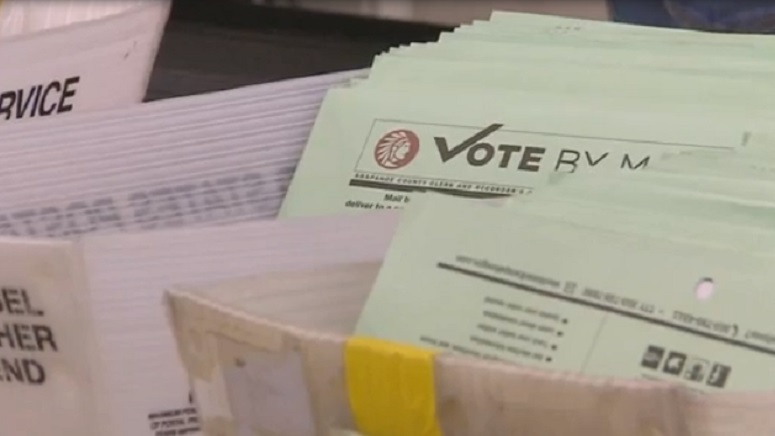BOSTON (WHDH) - Registration drives are a key strategy to increase voting rates among college students, but activists need to supplement those with targeted efforts to increase turnout among students who are already able to vote, voting rights advocates said Tuesday.
As groups across the country launched online campaigns for National Voter Registration Day, panelists brought together by MASSPIRG Students argued that it is crucial to communicate the value of electoral participation to already-registered students and not to constrain engagement efforts to registering new voters.
Nancy Thomas, director of the Institute for Democracy and Higher Education, pointed to the high-turnout 2018 elections as an example. In that cycle, she said, about 76 percent of college students nationwide were registered to vote, but only “a little more than half” of students actually cast ballots.
“There are so many barriers right now to registering to vote, so we think it’s good you’re focusing on it, but don’t lose sight of the fact that there are barriers to college students in actually turning out,” Thomas told a MASSPIRG Students virtual panel.
“That seems to be the biggest problem for college and university students: they register to vote, often through some automated system, but then they have all these barriers,” she continued. “They don’t know where to go, what to do, how to request a ballot, if it’s physically safe, and they need a lot of support in doing it.”
MASSPIRG Students, which organized Tuesday’s virtual event, has helped register 35,000 students to vote in the past decade, according to Brendan Geraghty, the group’s statewide board chair.
Activists have used that engagement to drum up advocacy on specific policy issues, too, Geraghty said. He pointed to students pushing the state Legislature to support transitioning Massachusetts to renewable energy sources and to crack down on predatory loan companies.
A problem on many campuses, speakers said, is disillusionment. Students may be registered, but often do not view their votes as having any weight.
“We have this misconception that our vote won’t matter, and if we continue to allow this notion to misconstrue our actions, we’ll be making a decision to stay stagnant and silence our voice,” said Annie Soup-Koagne, a member of UMass Lowell’s Black Advisory Council and event coordinator for the Association of Students of African Origin. “No matter how far our vision seems in the United States for the United States, we’re never going to get closer if we don’t start.”
Thomas warned that abstaining from voting renders people “invisible.” Pollsters will not contact non-voters to get a sense of where the public stands, she said, nor will candidates make concentrated efforts to reach constituents who do not vote.
“No candidate is ever, ever going to reach out to you and ask your opinion,” Thomas said. “If you are not a voter, they do not care about you. They simply do not care what non-voters think or do, so non-voters are invisible.”
One way she suggested improving participation for college students is working across different campus groups to promote engagement. Voting activists should not only target political clubs, but also try to reach a cappella groups and science labs and anywhere else that students congregate, Thomas said.
She and other speakers also said course instructors and college administrators should be involved. Integrating current events into class discussions can help encourage students to take action, they said.
Heidi Getchel-Bastien, an assistant professor of criminal justice and government at MassBay Community College, said faculty play a critical role at community colleges, where students do not spend as much time on campus.
“At community colleges, it’s especially important because we don’t have our students going back to a dorm and in a study group,” she said. “In a community college environment, us faculty members really are the gatekeepers of information to students.”
This year, many voter engagement efforts have turned virtual amid the COVID-19 pandemic, but groups are still hoping they can encourage unregistered students to fill out necessary paperwork and drive higher turnout.
Secretary of State William Galvin also marked National Voter Registration Day on Tuesday by touting a “large increase” in online voter registration traffic compared to 2016.
“The number of people registering to vote online this summer was more than triple the number registering online in the summer of 2016,” Galvin said in a press release. “The registration numbers over these last few weeks show that there is a great deal of interest and enthusiasm among Massachusetts voters and we want to make sure that everyone who wants to vote on November 3rd will be able to do so.”
Voters can register until Oct. 24, he said, though anyone who wants to receive a mail-in ballot should submit an application by Oct. 20 to ensure that their filled out ballot is counted once received by mail.
(Copyright (c) 2024 State House News Service.

